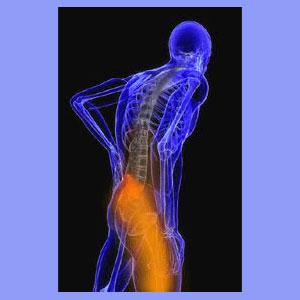
Sciatica at night is one of the most common times for back and leg pain to occur. Most patients feel better after sleep and wake up ready to face the world. However, after a long day of activity, it is common for pain to come on strong. When pain occurs at night, and especially in bed, the patient may be hard pressed to find a comfortable position and may not be able to enjoy a restful sleep.
The scope of this article centers on nighttime sciatica, including the reasons why it may occur and the possible solutions to resolve it.
Sciatica at Night Explanations
All varieties of back pain might be physically or emotionally linked to the day’s activities. Work can be very stressful to the anatomy and the mind, as well, creating the ideal circumstances for anatomical or psychological sciatica to occur.
The spine gets shorter throughout the day, as the intervertebral discs lose moisture from use and abuse. This may increase pressure on any spinal nerve root which is affected by structural compression. Therefore, it is common that pinched nerves may become more symptomatic at night.
After a night of reclined rest, the intervertebral discs naturally decompress and gain back their moisture and height. This process occurs every day and can be influenced by the amount of physical work performed and the amount of quality rest a patient can get.
Unfortunately, most patients feel there is something wrong with their pillow or mattress and usually spend lots of money replacing these items. Sure a new mattress is great, but it is not likely to provide a cure for your sciatica.
In a few uncommon instances, there may be particular positionally-sensitive spinal issues which may be exacerbated at night. In these instances, it is best to consult with your neurologist and physical therapist to find the best possible way to sleep. After all, you need to get your rest or your pain will be the least of your worries.
Nighttime Sleeping Sciatica
Sciatica symptoms which begin once a patient is asleep are often a primary indicator of a psychosomatic condition. Sleep is a time when the subconscious mind is free to create mischief, since the conscious mind is completely at rest. This is the reason for dreams and a variety of painful occurrences which can wake a person up at night.
When I receive letters from people stating that they are fine when they are awake, but experience pain when sleeping or resting, I virtually always advise them to seek out knowledge therapy. This is the most logical and appropriate treatment option for sleep-related sciatica.
Sciatica at Night Synopsis
Nighttime sciatica can make ending the day very uncomfortable and often robs people of time to spend with their families after a long day of work. This is a very unfortunate consequence of the pain condition and the subsequent stress on interpersonal relationships can be just as bad as the bodily misery.
In order to recover from any chronic sciatica syndrome, it is crucial to attain an accurate diagnosis and create a plan to enact a cure. This means not getting lost in a symptomatic treatment regimen and working steadily to experience lasting and compete relief. For many patients, this process is as easy as being exposed to knowledge therapy. Other individuals require medical care, such as spinal decompression or even sciatica surgery. Just make sure that you research your options carefully before making any choice and be sure to use surgical intervention as a very last resort.
Read more about sleeping positions for sciatica.




